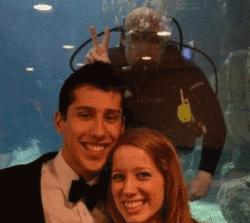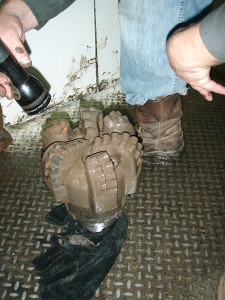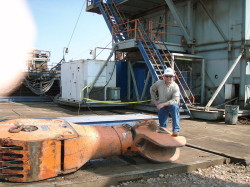Blog Archives
 Daniel Drezner thought his experience in Ukraine was outdated because it’s been twenty years. Turns out, he’s wrong.
Daniel Drezner thought his experience in Ukraine was outdated because it’s been twenty years. Turns out, he’s wrong.
Separatists in Ukraine have taken to waving the Confederate Flag (sort of). They’ve also tried to re-start a WWII tank.
Silicon Valley has more employees from Texas than India.
If McDonald’s in Alaska can afford to pay their workers more than they are paid in Texas, why can’t they pay that much in Texas? Adam Ozimek response. A Walmart in North Dakota is paying $17/hr. Ahhh, the bargaining power of labor shortages.
646,000 new manufacturing jobs added from 2/10 to 5/14!
Republicans talk about wanting to reduce government, but British Conservatives are working hard it.
The hard life of liberal gun lovers.
According to Pew (Warning: as reported by Townhall), the notion that the political dynamics of the US have primarily been a case of the right moving rightward and the left standing still (or dragging to the right) is inaccurate.
Japan has awesome high speed trains. Here’s why.
Rail in the US is very expensive.
-{This is a crosspost of my submission to the Work Symposium over at Ordinary Times.)
 When we moved from our previous home in the Mountain West to our current one in the Mountain East, it was a very long and stressful drive. The best evening we spent was in Ohio, where we somehow ended up snagging a hotel room at a rustic golf resort hotel off Kayak. Our least pleasant is equally as easy to determine: Dickinson, North Dakota. Hotel rooms in Dickinson were virtually non-existent. We found a Super 8. The outside whole hotel smelled like sweat and cigarette smoke. Our room hadn’t been cleaned when we got it. Housekeeping – or somebody – stole my daughter’s Cat in the Hat book.
When we moved from our previous home in the Mountain West to our current one in the Mountain East, it was a very long and stressful drive. The best evening we spent was in Ohio, where we somehow ended up snagging a hotel room at a rustic golf resort hotel off Kayak. Our least pleasant is equally as easy to determine: Dickinson, North Dakota. Hotel rooms in Dickinson were virtually non-existent. We found a Super 8. The outside whole hotel smelled like sweat and cigarette smoke. Our room hadn’t been cleaned when we got it. Housekeeping – or somebody – stole my daughter’s Cat in the Hat book.
 Dickinson is over two hours south of Williston, North Dakota, which is the focal point for the oil boom that has come to define the state. I thought that would be enough distance from all of the activity that we would be able to avoid what we weren’t.
Dickinson is over two hours south of Williston, North Dakota, which is the focal point for the oil boom that has come to define the state. I thought that would be enough distance from all of the activity that we would be able to avoid what we weren’t.
The previously small town of Williston has been getting a lot of national press lately due to the insanity that has followed the oil boom. There was initially some positive coverage, but it was quickly followed by a different type of article. One that stated, in effect, the economic boom is great for some, but… but… but… there’s crime, sexual harassment, housing shortages, doctor shortages, and on and on.
The problems range from annoying to serious, but the overall tone I think gets it backwards. It’s not that there’s a great things but all of these problems. It’s that there are these problems, but there is this great thing!
 I sacrificed my career for my wife’s. Her career needs resulted in five moves over ten years, including to places that are inhospitable to a career in IT. I made the most of every landing while I could, but each new location meant a step back from the promotions and capital I’d built at the previous. Then we landed in ruralia, and there simply were no opportunities. While there, our daughter was born and I became a stay-at-home father.
I sacrificed my career for my wife’s. Her career needs resulted in five moves over ten years, including to places that are inhospitable to a career in IT. I made the most of every landing while I could, but each new location meant a step back from the promotions and capital I’d built at the previous. Then we landed in ruralia, and there simply were no opportunities. While there, our daughter was born and I became a stay-at-home father.
I find myself preoccupied at times with what happens to us if something happens to my wife. She’s ineligible for any sort of significant life insurance. I’m beyond mere long term unemployment. I would also have a daughter to take care of, which means that I’m not sure I would even have the breathing room to “start at the bottom” in the way that I did. Even with the recognition that I have it better than so many, it’s a sense of vulnerability I have never really experienced before.
 If, heaven forbid, something did happen to her, I would not start looking for work in North Dakota. I would start in my home town, to be near my family. Or my wife’s home town, to be near her’s. I’d exhaust every personal contact that I have there and elsewhere. I’d ask former bosses and if I needed to I would move back to the Mormon West if that was where opportunity is. I’d look in Kansas. I’d look in South Dakota.
If, heaven forbid, something did happen to her, I would not start looking for work in North Dakota. I would start in my home town, to be near my family. Or my wife’s home town, to be near her’s. I’d exhaust every personal contact that I have there and elsewhere. I’d ask former bosses and if I needed to I would move back to the Mormon West if that was where opportunity is. I’d look in Kansas. I’d look in South Dakota.
If all else failed, though, it is of enormous relief to me that there is a North Dakota. Some place that could very likely use me if I have nowhere else to go. We might be living in a repurposed FEMA trailer, but there is a place to go. I would worry about crime and specifically my daughter, but there is a place to go. Life is accepting that not everything can happen on your terms, and if North Dakota’s terms are what there are, I’m glad that they are there, to the extent that they are, for however long they are.
 By the time I was in high school, I had resolved never to leave the city where I grew up unless I needed to. Fortunately, it was a big city with enormous opportunity where having to leave was unlikely. I grew up there, I went to college there, and it seemed unlikely that anywhere could offer me what that city could. I wanted to be near family. I wanted to be near friends. Big city amenities with small city prices. Who could ask for more?
By the time I was in high school, I had resolved never to leave the city where I grew up unless I needed to. Fortunately, it was a big city with enormous opportunity where having to leave was unlikely. I grew up there, I went to college there, and it seemed unlikely that anywhere could offer me what that city could. I wanted to be near family. I wanted to be near friends. Big city amenities with small city prices. Who could ask for more?
Then I met my wife, with her plans to go west and her need not to be in a city. Her professional training would be built around living somewhere else. So for love, and not money, I packed everything in my Ford Escort and left. Into great personal and professional uncertainty. Into a part of the country that was very much not North Dakota. Or, for that matter, the place I left. It was incredibly difficult to leave my family behind. I still lament, at times, the social network I left behind and have been completely unable to rebuild in one move after another.
 Whether for love or money, leaving is an incredibly difficult thing to do. Sometimes, it’s an impossible one. It’s financially impossible when you’re underwater on your mortgage or you have a spouse who is nailed down where you are. It’s personally impossible if you have family to take care of. Moving for money is also not a broader solution to the economy. There are 20,000 jobs in North Dakota, and far more than that looking and waiting for work.
Whether for love or money, leaving is an incredibly difficult thing to do. Sometimes, it’s an impossible one. It’s financially impossible when you’re underwater on your mortgage or you have a spouse who is nailed down where you are. It’s personally impossible if you have family to take care of. Moving for money is also not a broader solution to the economy. There are 20,000 jobs in North Dakota, and far more than that looking and waiting for work.
For some, though, it represents a fantastic opportunity. A friend of mine from out west has hit a dead end, career-wise, and is considering getting a commercial drivers license and heading east. It would mean being away from his wife and step-children for six months of the year, but in that time he can earn more than he earns year around where he currently lives. People like myself who need reintroduction into the workforce when all else fails. Kids just getting started in need of experience and job skills.
 When I was substitute teaching in a decaying Mountain Western town, I was always depressed at the dim prospects of a lot of the students I saw over. Many of the best and brightest would leave for the bright lights of Denver, Seattle, or Salt Lake City. But the rest? What of the rest? Towards the end of the year I would start getting more high school assignments and I heard a lot of them talking about what they planned to do next. College, for some. Others talked about going east to the oil fields.
When I was substitute teaching in a decaying Mountain Western town, I was always depressed at the dim prospects of a lot of the students I saw over. Many of the best and brightest would leave for the bright lights of Denver, Seattle, or Salt Lake City. But the rest? What of the rest? Towards the end of the year I would start getting more high school assignments and I heard a lot of them talking about what they planned to do next. College, for some. Others talked about going east to the oil fields.
The New York Times published a piece on young people in Montana going straight to the fields out of high school. The piece had a somber tone, but for a lot of the kids it truly is a great opportunity straight out of the gate. There are opportunities for people just graduating college as well, as the South Dakota School of Mines at least temporarily passed Harvard for graduate incomes. Obviously, that’s major-dependent, but opportunities abound.
 I don’t begrudge those who look at North Dakota and think about living in a trailer (or worse) and living amidst the chaos, and simply want no piece of it. I don’t blame those who don’t want to leave family behind. I know that a lot of people can’t. I also know that the life calculations are going to be different for everybody. Ten years ago, North Dakota would have been a lot less unattractive to me than it is now, and ten years from now it will likely be more unattractive, and that’s despite holding a lot of the “me” of the equation constant.
I don’t begrudge those who look at North Dakota and think about living in a trailer (or worse) and living amidst the chaos, and simply want no piece of it. I don’t blame those who don’t want to leave family behind. I know that a lot of people can’t. I also know that the life calculations are going to be different for everybody. Ten years ago, North Dakota would have been a lot less unattractive to me than it is now, and ten years from now it will likely be more unattractive, and that’s despite holding a lot of the “me” of the equation constant.
I don’t blame those who don’t want to take the journey. I can’t blame those who can’t. I am not unsympathetic to those who don’t want to. But I wholeheartedly celebrate those who can and do.
 Beneath the weeds, through all of the chaos, lies opportunity. The vast majority of the chaos caused by that very opportunity. It’s the bad that comes with the good. They are all textures of an unspeakably beautiful painting. When you attract the good, you attract the bad. Rapid growth is by its nature chaotic, but with it lies opportunity. Beautiful, scary, wonderful, chaotic, glorious opportunity.
Beneath the weeds, through all of the chaos, lies opportunity. The vast majority of the chaos caused by that very opportunity. It’s the bad that comes with the good. They are all textures of an unspeakably beautiful painting. When you attract the good, you attract the bad. Rapid growth is by its nature chaotic, but with it lies opportunity. Beautiful, scary, wonderful, chaotic, glorious opportunity.
While it’s not for everybody, and it’s not a universal solution, but for those of whom it is an opportunity? I’m giddy and elated that it’s there.
As time passes, it too will eventually pass. Hopefully it will be because we have made innovations in renewables that render such resource exploitation unnecessary. Or else, eventually that particular well will run dry. Perhaps to be replaced by another somewhere else, or perhaps not. Maybe replaced by some new wizbang technology that will allow us to turn the entirety of northern Nevada into a power generator for the entire country. Hopefully, some new industry will come along somewhere and put us to work.
If something else does come along, it will likely cause chaos wherever it occurs. And it will be beautiful.
Libby Watson finds American satire lacking:
That’s part of why British political discourse makes American politics look like tea at the cricket club. When Congressman Joe Wilson yelled, “you lie!” at President Obama, it was a national incident, but raucous shouting at the Prime Minister during Prime Minister’s Questions has been a weekly institution since the 19th Century. We throw eggs at our politicians; we nick their bikes; we certainly don’t stand when they enter the room.
This jeering hatred of politicians is integral to The Thick of It. Malcolm calls minister Nicola Murray a “psycho-fanny,” and violent threats that he’ll “sell off [her] fucking flayed skin” are standard. And these politicians are worthy of hatred. Nicola is a total “omnishambles;” her predecessor Hugh uses the story of his adviser Glen’s special-needs son to lie to Parliament. The advisers are as terrible. Malcolm is the “Malchiavellian” scumbag behind it all, but every single one is slimy, backstabbing, and horrible. Ollie is a “man worm,” who helps depose both Nicola and Malcolm. Others trade nicknames for a mentally ill man: “The fucker’s a nutbag.”
It’s certainly true that our style of politics – as acrimonious as it often is, can be compared as “gentle” compared to British politics. It also makes sense to me that The West Wing is a truly American type of program.
Having seen both, I also mostly with her comparisons of the American and British versions of House of Cards, though that’s more complicated than it initially appears. Our Underwood was, I’d argue, actually considerably more villainous than their Urquhart. The British version, though, had a very American over-the-top feel while British satire tends to be more… patient.
I think Watson really nails it here, though:
It’s not only hatred, though—Brits don’t have the forgiving impulse that America has for its politicians. The fall-and-redemption story is familiar in American politics. Last year, we got a Congressman Mark Sanford as proof. George W. Bush’s paintings of dogs hang on the national refrigerator, with him trotting them out in a fluffy Today Show interview with his daughter.
And I think the the politics discussed throughout is symptomatic of our interest in the redemption narrative rather than being about politics in particular.
To take it out of our statehouses and DC, I consider The Office to be indicative of this. On first blanch, their David Brent was two-parts creepy and one part annoying. Our Michael Scott was two-parts annoying and one-part creepy. As time progressed, the difference became more increasingly important. Early on in the series I wrote the following about Scott:
The most telling scene with Michael Scott was when he was showing a video of his younger self on a kiddie show of some sort. He is asked what he wants most from life and he says it’s to get married and have 100 kids so that none of them could decline to being his friend. One of the saddest scenes on television pretty much ever.
Frankenstein’s Monster said something along the lines of “I am a monster because I am in pain.” Whenever I run across someone either in real life or in entertainment that has an emptiness in their heart, it makes me very wary.
Michael Scott’s younger years are never spelled out and though he likes to talk about himself he doesn’t really do so in honest or accurate terms, so we’re left to speculate. Nonetheless, it seems relatively apparent to me that Michael hasn’t just been hurt by what social rejection almost certainly took place in his past, but rather that he’s been scarred by it. I see within him a certain darkness in his soul where the part of him that is loved and accepted should reside. That’s not to say that he is completely unloved and unaccepted as his mother seems to love him (if not respect him) and Dwight functionally (if not earnestly) respects him, but it’s clearly not enough.
The dangerous Scott painted in this portrait is beyond redemption. And yet, however, he was redeemed. It’s not just that Scott had over seven seasons to find his redemption while Brent had only two. Brent could have had ten and it wouldn’t have mattered. Not only because of the two-part-one-part difference, but because Scott’s happiness and Brent’s being forced out were both natural extensions of how each side likes our stories told.
Whether about politics or a guy running an office.
Intellectually and artistically, I have a preference for the British model. Our House of Cards and The Office are more entertaining, but theirs are stories better told. But I have the heart of an American, I suppose. The British version of the Office was simply hard for me to watch. House of Cards was easier, but I am still disinclined to ever go back and watch it. I seem to appreciate their approach from a mild distance.
German prison inmates want to unionize.
Food establishments continue to dip their toe in automation.
We Americans work less than we think we do.
It’s the least educated and least skilled where unemployment tends to be highest. Yet theirs is also the sector where the job market is improving the fastest.
Patrick Ruffini looks at the data wars between Democrats and Republicans, and how the latter is trying to catch up.
Physicians used to be a Republican constituency, but not so much these days. I wrote about the shift in 2011. The Obama Administration has done a lot to reach out to primary care docs, which is where a lot of the shift is occurring.
A frequent suggestion for lowering health care costs is to cut physician salaries. Kevin Pho explains that other things might need to change to facilitate that. Benjamin Brown has more.
While we’re looking at such things, what’s up with administration costs?
Transparency in health care pricing, though, may be worth a look.
In France, President Hollande is trying a bit of statecraft…
Starbucks is getting some good publicity for helping it’s employees go to college:
Arizona State is one of the nation’s largest universities and has grown rapidly in recent years. Crow said it has about 65,000 students enrolled in programs at the main campus in Tempe and others in the Phoenix area. Another 10,000, he said, are enrolled in online programs that began three years ago. The university has 40 online undergraduate degree programs, in subjects ranging from art history to electrical engineering.
The Starbucks initiative could help double the university’s online footprint. Crow, who is one of the nation’s more ambitious university leaders, said Arizona State’s online operation is of a scale comparable to those of Penn State University and the University of Maryland University College.
Crow said he was pleased to collaborate with Starbucks on a program that aims to deliver “a first-class college education.” Arizona State, he said, “has the vision, programs and scale to deliver it to Starbucks employees in every part of the country.”
Burt approves, as it coincides with his own views that employment should not be considered a contract.
I would have expected to respond to this sort of thing very favorably. And yet I find my actual response to be more mixed. Not that I think Starbucks is doing anything wrong here – not in the least – but that something is sort of amiss.
As far as online colleges go, Arizona State University has one of the most expensive programs. It’s been a general disappointment that brick and mortar universities have not used online education as a means to reduce costs (suggesting, in my view, a profit center). Especially so, though, witht he big name universities like Arizona State and Maryland. Others, owing perhaps in part to their lack of brand and the fact that they serve less wealthy states, have done better. While Arizona State’s online tuitions are $500 an hour, Troy University’s are closer to $300 or so and North Dakota is closer to $200 (with other North and South Dakota schools being between $200-300). The normal in-state tuition discrepancy isn’t nearly this large.
Starbucks, meanwhile, is a relatively premier employer for those in the service industry. Contrary to what some people think, it’s not actually easy to get a job there. Leaguer Michael Drew has reported as much, and that corresponds with my experience. So while you may be dealing with people who have been “reduced” to service industry jobs, you’re still dealing with a cut above the rest. And now they have easy access to a great school that seemingly put up cost barriers to everyone else.
And Starbucks is getting a tax benefit for doing so, as college tuition (similar to health insurance) is a tax-free form of compensation.
Which leads me to the niggling concern that as a stop-gap for us having to deal with escalating college costs, we may have price-insensitive employers striking deals (negotiated rates) with universities. Making yet another thing tied to who you can get a job with. With yet another bypass of dealing with the rising and inflated costs of university.
 In Tampa, a family ate a steak that was laced with LSD and while at the hospital had a baby who was not a hallucination.
In Tampa, a family ate a steak that was laced with LSD and while at the hospital had a baby who was not a hallucination.
Emily Bazelon and Daniel Drezner point out that there are tradeoffs involved when trying to combat sexual assault on campus, and have some sensible suggestions. Shorter version: Higher standard of proof, but harsher punishments.
Related to a recent post of mine… Kay Hymowitz says that parental self-expectations are making parents miserable.
Marriage rates track with all sorts of good outcomes on both an individual and societal level. Steve Waldman thinks that promoting marriage on that basis is a bad idea. Education tracks similarly, and Scott Sumner explains why promoting education on that basis is a bad idea.
Many in Europe want to become what the Ukraine is trying to escape.
Idahoans are having lots of sex to get pregnant. Washington DCers, maybe less so.
Intra-Euroland immigration into the UK is complex. While Polish Plumbers have become a shorthand, immigrants from different places have different effects and different receptions.
Norwegian Air wants to making international flights cheaper for Americans, and United and Delta want to stop them.
Mozilla is going to sell a $25 smartphone in India. I wonder if it’s a better or worse phone than some of the old smartphones I have around here that I have no idea what to do with.
Reihan Salam thinks we need to hold colleges accountable for student outcomes. It’s an interesting thought, but for better or worse it strikes me as an incentive for colleges to pick their students wisely.
I’ve commented in the past that we don’t raise the gas tax because people are stubbornly opposed to it. I could be wrong, it turns out.
The Patent Board has spoken:
The United States Patent and Trademark Office has canceled six federal trademark registrations for the name of the Washington Redskins, ruling that the name is “disparaging to Native Americans” and thus cannot be trademarked under federal law that prohibits the protection of offensive or disparaging language. {…}
“The Trademark Trial and Appeal Board agreed with our clients that the team’s name and trademarks disparage Native Americans. The Board ruled that the Trademark Office should never have registered these trademarks in the first place,” Jesse Witten, the plaintiffs’ lead attorney, said in a press release. “We presented a wide variety of evidence – including dictionary definitions and other reference works, newspaper clippings, movie clips, scholarly articles, expert linguist testimony, and evidence of the historic opposition by Native American groups – to demonstrate that the word ‘redskin’ is an ethnic slur.”
Neil Irwin argues that this is the beginning of the end.
It has been assumed, by myself and I believe others, that this ruling – if upheld – would mark the end of the team name. Having thought about it more, I am not so sure. The six trademarks that the board revoked all specify the team name. The team would just redub themselves The Warriors and keep everything else – including the Indian head on the helmet – the same. Or they could simply not do that.
The irony of this ruling is that it doesn’t mean that Dan Snyder and his club can’t use the name, but that anyone now can. If they changed their name, tens of thousands of people who are too cheap to buy Washington Warriors shirts could instead wear unauthorized Washington Redskins shirts that the football team cannot stop anybody from making. This is in contrast to the North Dakota Sioux, who in addition to retiring the name, did retain the copyrights to prevent that sort of thing from happening.
More to the point, though, the rest of the Redskins trademarks are still in tact. You still can’t do the Indian head. You can’t replicate a jersey beyond the basics (which I am pretty sure could be done anyway) so long as they replace the “Redskins” with “Washington”. You can’t replicate their hats. The vast majority of their merchandise sales would be entirely unaffected.
For it to be otherwise, the board would have to say that not only will they deny that trademark, they will deny all trademarks of any organization that uses an offensive name. Among other things, that raises First Amendment issues as that gets into punitive territory. (The police have no positive duty to protect you, but they can’t pass a law saying that they will specifically refuse to protect people who engage in unpopular speech.)
Most owners would probably not go that route. It does seem, increasingly, that the writing is on the wall here. Snyder is stubborn, though, and he may well defy it if the NFL itself doesn’t intervene (which it could). Even so, I naturally resist Irwin’s (or anybody’s) declaration of what the Redskins will “have to do” without demonstration of actual leverage to require them to do it.
I was about to say that it reeks of talk in the late nineties and early aughts that the US would just have to give up control of the Internet because the world was demanding it. But Obama, for no real reason at all, did end up giving it up. Which, despite all of what I say above, may end up being the result here.
Note: FWIW, Mitch knows of my Will Truman identity and could be reading this.
Greeks have it good:
Researchers at Gallup believe they found a formula for a good life after college, and students in fraternities and sororities are more likely to follow it than most.
The polling firm interviewed tens of thousands of college graduates about their well-being after college. They found a few steps students can take in college that predict whether they will be thriving financially, socially, and in the workplace after they graduate. Put simply: “Find professors who excite you and make you care. Get very involved in an activity. Find a mentor. Get an internship. Work on a long-term project.”
Students who were in fraternities and sororities were more likely to do all five — and more likely to say they had a sense of purpose at work, that they had strong connections to friends and family, and that they like where they live, Gallup said this week.
You always have to worry about confounding factors, even if they control for the most obvious ones. This definitely strikes me as one of those cases where the confounding factors may not be measurable.
Even keeping that in mind, though, I believe it. Fraternities and sororities can often encourage the type of participation that sets people on the right course.
One of the surprises when we went to Clancy’s ten year reunion was that there were people there who not only knew of me, but had stayed in my house! Specifically, they were friends of my brother. When we were out of town, they had stayed in our place in Estacado for some reason or another. It was none-the-less strange at the meet-and-greet party when someone said “Dude, this is Mitch’s brother!”
Indeed I am. Small world.
Apparently, he was a part of the crew at Mitch’s bachelor party, and that was how he knew me by sight.
Mitch was never as socially awkward as I was, but he became someone else entirely aRightly or wrongly, I credit a lot of that to his joining the fraternity in college. The fraternity he joined is not actually a very big deal at the University of Deltona (DU), where he attended. I’m not even sure they even still have a house there.
His fraternity is, however, a really big deal at Southern Tech. It is one of the most well-known and is kind of infamous. It’s the sort of fraternity that I never would have gotten into… except for the leg up I might have gotten by virtue of having a brother who was not only a member (at DU) but was its treasurer. I don’t know how well that would or would not have translated into membership at the Sotech chapter, but I sometimes think it would have made a huge difference.
I am not particularly “fraternity” material, in many respects. My saying “it’s not for me” would surprise nobody. But my brother did invite me to various fraternity events at DU and I had a whole lot of fun. I did like to drink! I did enjoy being in the company of ladies.
Even so, the very thought of joining a fraternity is well outside my comfort zone. Before he thrived in one, I would have guessed the same of Mitch. Which is sort of the rub. Perhaps pushing me outside of my comfort zone would have spurred enormous growth. It might have expanded my comfort zone to the point that I would be a different kind of person with a more society-preferred public persona. I might be less the kind of person that says things like “society-preferred public persona” and more like a non-alien that people are more comfortable around.
A lot of what I am thinking about by people, of course, is girls. Especially as I used to think about it before I found my happy ending. These days, though, it has less to do with that and more to do with the difficulty I find in meeting people more generally.
I sort of chose my path, and my path was along the lines of “weird dude.” Bird of rare plumage. Different drummer beatmarching. However you want to put it. Which maybe it was always supposed to be. Yet though it often doesn’t feel like it, I have a lot in common with my brother who turned out very differently from me.
Were our differences always there? Or did I just never join a fraternity?
Vox has a piece outlining some of the changes that are coming with the next iPhone. A lot of it is unimpressive and that I don’t care all that much about. Some of it is kind of cool.
I do think it’ll be great to have more interoperability between Macs and iPhones, which is something that I will probably never have since my phone OS and computer OS are done by different people.
I definitely applaud this move:
The onscreen keyboard on original iPhone was a breakthrough, but in the last seven years Apple’s competitors have come up with innovations of their own. iOS 8 makes two major changes that Apple hopes will help Apple regain the keyboard lead. First, a new technology called QuickType attempts to guess which word the user will type next and allow her to select it with one tap. The technology learns the user’s typing style, even customizing the selections depending on who she is talking to.
Users who aren’t satisfied with the iOS keyboard will have the option to ditch it altogether. For the first time, iOS will support third-party keyboards.
This is, of course, old hat for Android users (except the part about customizing depending on who you are talking to. But considering that I criticize Apple products for their unwillingness to let third-party devices on, I should applaud them when they become willing.
At this point, I am actually still using the default Samsung keyboard. They finally got it right. Before upgrading to my current phone, I bounced around a bit from SwiftKey and TouchPal. The frustrating thing is that while all of these keyboards are capable, I have yet to find one that I am really comfortable with, despite having no physical keyboard for quite a while now. I had genuinely expected that I would get settled in. Which I might have, if I’d just stick to one. Which is an advantage to what has historically been Apple’s approach.
Apple is getting some criticism for getting rid of the audio jack:
The tech giant is said to be considering doing away with the headphone jack when the iPhone 6 comes out this summer — and the rumors have even die-hard Apple customers wondering if it’s time to iTune out.
“I have a pair of Beats headphones that cost hundreds of dollars,” griped David Fu, 24, outside the Apple Store on 14th St. “They would really piss off a lot of people if we couldn’t use headphones like that anymore.”The iEverything faithful are still sore from two years ago, when Apple replaced its 30-pin input on iPhones with a smaller Lightning connector.
Suddenly all those expensive charging units, external speakers and docking stations didn’t work with the new iPhone — unless customers bought a $30 adapter.
With regard to the chargers, Apple would be more vulnerable to criticism if they did it more regularly. But technology changes, and improves, and it’s perfectly reasonable to change charger standards every now and again.
I also think that some of the criticism about the headphone jack is probably misplaced. Apple people are obsessed with space-economical design and the headphone jack takes up space. With the right adapter, it’s usually going to be a non-issue. Keep the adapter more-or-less attached to the headphones (most people aren’t going to use the headphones for much else. Maybe have another adapter for the car, which could actually be more convenient for some people if they are able to plug their car into power and audio with a single click.
Some of my old HTC phones didn’t have separate headphone jacks. I was excited when I finally did, but as I put my phone on the dash of my car and plug it in I realized – long before hearing about Apple’s intentions – that the process would be one step shorter with a dual jack.


